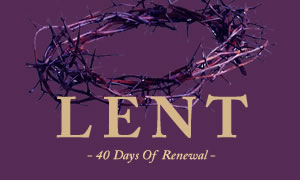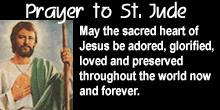


 Father, all powerful and ever living God, today we rejoice in the holy men and women of every time and place. May their prayers bring us your forgiveness and love. We ask this through our Lord Jesus Christ, your Son, who lives and reigns with you and the Holy Spirit, one God, for ever and ever.
Father, all powerful and ever living God, today we rejoice in the holy men and women of every time and place. May their prayers bring us your forgiveness and love. We ask this through our Lord Jesus Christ, your Son, who lives and reigns with you and the Holy Spirit, one God, for ever and ever.
Prayer for All Saints Day, (Liturgy of the Hours)
The communion of the saints is a sublime doctrine, one that typically provokes feelings of wonder among Catholics, providing comfort and encouragement to believers. Yet, many non-Catholics and Catholics fail to understand the term, or realize the fullness of the doctrine. Communion of the saints is a technical Church term, but on a basic level it refers to the fellowship or spiritual solidarity of all God's people, on earth, in heaven, and in purgatory. However, communion of the Saints refers to more than just communion of holy people, but also a communion in holy things. The Catechism of the Catholic Church notes this important connection (#948):
Sancta sanctis! ("God's holy gifts for God's holy people") is proclaimed by the celebrant in most Eastern liturgies during the elevation of the holy Gifts before the distribution of communion. The faithful (sancti) are fed by Christ's holy body and blood (sancta) to grow in the communion of the Holy Spirit (koinonia) and to communicate it to the world.
Thus, the Church has communion in the Faith, the Sacraments (above all the Eucharist), the charisms, the Lord's goods, and charity. These riches are communicated to Christ's Body through the Sacraments. Those in the Church partake of these goods received from Christ; these holy things from God make us holy people, which brings us back to the usual understanding of the "communion of the saints."(CCC 949-952).
This communion of holy people, like the Catholic Church itself, is universal. The Catechism explains the vast scope of the Catholic teaching:
"We believe in the communion of all the faithful of Christ, those who are pilgrims on earth, the dead who are being purified, and the blessed in heaven, all together forming one Church; and we believe that in this communion, the merciful love of God and his saints is always [attentive] to our prayers" (CCC 962)
By virtue of our baptism we become children of God, joint heirs with Christ. To say it yet another way, we are adopted into the family of God. Because we are joint heirs with Christ, we also share in the victory of his resurrection (Colossians 2:11-13, Romans 8:15-17, etc.). In this way, the family of God extends beyond faithful Christians on earth, but also to the blessed in heaven with God and those awaiting heaven in purgatory. This is what makes the communion of the saints truly universal: it spans history, geography, nationality, race, and all other temporal barriers we might erect.
Just as we worship God on earth, so do those Christians who have gone before us worship God in heaven. The author of Hebrews writes in 12:22-24:
But you have come to Mt. Zion and to the city of the living God, the heavenly Jerusalem, and to innumerable angels in festal gathering, and to the assembly of the firstborn who are enrolled in heaven, and to God, the judge of all, and to the spirits of the righteous made perfect, and to Jesus, the mediator of a new covenant, and to the sprinkled blood that speaks a better word than the blood of Abel (NRSV).
One of the main ways in which we on earth are united with the heavenly Body of Christ is in the Mass, the Sacrament where heaven meets earth through the Body and Blood of Christ. In the Mass, we join our voices and worship with the worship of the heavenly saints and the angels.
The Church has also believed in the role of those in purgatory, and especially the saints in heaven, as intercessors. Modern Christianity (probably due to a Newtonian scientific worldview) has frequently viewed heaven and earth as completely disconnected from one another, but this idea was foreign to Christians in the past. The Church of Christ, in heaven, purgatory, and on earth, was and is, always unified.
The Christian community naturally prays for its members and since we believe in one Church, asking saints to pray for us is not all that different from asking a friend or family member to do the same. Death doesn't end one's place in the Church; in fact, the prayers of the blessed in heaven are very powerful because they are already in the fullness of God's presence.
The Church has also singled out unique individuals who are with God in heaven, holy men and women worthy of imitation. This process of becoming an officially recognized Saint is called canonization. Because the lives of these individuals have been thoroughly examined and found holy, and because miracles have been associated with their intercession, we can be assured that they are role models in faith, and powerful intercessors before God on our behalf (James 5:16 tells us the prayer of the righteous person avails much). As Catholics, we can and should ask these canonized Saints to pray for us. We also celebrate them, honoring each on a saint day. The author of Hebrews wrote in 12:1-2:
Since we are surrounded by so great a cloud of witnesses, let us also lay aside every weight and the sin that clings so closely, and let us run with perseverance the race that is set before us, looking to Jesus the pioneer and perfecter of our faith, who for the sake of the joy that was set before him endured the cross, disregarding its shame, and has taken his seat at the right hand of the throne of God (NRSV).
Thus, we are surrounded by our brothers and sisters in Christ who came before us. They, like spectators at a sporting event, cheer us on and encourage us as we make our earthly pilgrimage. What a great blessing it is to be connected with believers, past and present, in the family of God, aided by their prayers and encouragement.
At this point we would like to mention another view of the communion of the saints which is incomplete. Some believe the communion of saints only refers to believers on earth. Why should those Christians who came before us, many of whom were models of holiness and fidelity, be excluded from fellowship? When a loved one dies, does he or she cease being a member of the family? In the Church's view, a departed Christian does not cease to be a part of Christ's Body, but rather comes into the fullness of what it means to be a child of God in that Body.
Some people object to the communion of saints because they think that souls don't go directly to God at death, but "fall asleep." This view runs contrary to Scripture and Tradition, which affirm the soul goes to the afterlife immediately after death. Jesus promised the thief on the cross he would be with him in Paradise "today" (Luke 23:43). St. Stephen before he died said "Lord Jesus, receive my spirit" (Acts 7:60). Also, Jesus said God "is the God of the living, not the dead," as evidence of the resurrection of the dead (Matthew 22:29-33).
We hope this article helps you to understand the wonderful doctrine of the communion of saints and that it enriches your worship life. It is a humbling, yet awe inspiring thought to know that when we worship God, especially during the Eucharist, we are joining our worship with every Christian in heaven, in purgatory, and on earth from the beginning of time until the present day.


I have been thinking a great deal about my experience at Reconciliation this past Saturday. I felt an intense and unexplainable urge to go and confess my sins when I woke up that morning. I try to go every six weeks or so, but this was no routine visit to the priest for me. I needed to unburden myself of the numerous venial sins I had committed since I last participated in this Sacrament.
Purest Gold: God's Refining Fire in our Lives »
After salvation, many young Christians wonder if there's anything more to their newfound faith than just the security blanket of "being a Christian." Time and time again, God shows himself as a "refiner," and our lives are as gold. God started leading me in this study to understand what He was doing in my life, as well as in the lives of others.
Picking up my pen to write this column, I couldn’t imagine how time flies. Since the last publication of this column I have gone through a lot, especially the loss of my dear mother to whom I dedicate this article. Not only her, but seems I lost a whole generation of my close family.
How to Achieve Business Excellence »
“Do you see a man who excels in his work? He will stand before Kings; He will not stand before unknown men.” Proverbs 22:29
Spiritual Development for our Youth »
Most of us youth in today's fast moving world are easily thrown off by difficulties and worries.
The theme of conversion is a thread that runs all through Lent, but conversion takes on different aspects throughout the phases of Lent. The first two and a half weeks focused on the interior turning of hearts; the liturgy urges the faithful to reflect and examine consciences thoroughly.
Saint Josephine Bakhita »
Feast Day: February 8
Patron Saint Of: Sudan
Saint Josephine Margaret Bakhita was born around 1869 in the village of Olgossa in the Darfur region of Sudan. She was a member of the Daju people and her uncle was a tribal chief. Due to her family lineage, she grew up happy and relatively prosperous, saying that as a child, she did not know suffering.
Catholics Must Fast More Intensely This Lent»
The Norbertine Canons of St. Michael's Abbey have created this digital Lenten retreat so that you can journey through this holy season alongside them. If you want to have one of your best Lenten seasons yet, join us in our Lenten Program "The Great Fast" - https://theabbotscircle.com/the-great-fast-join
When Your Faith Is Put to the Test - Bishop Barron's Sunday Sermon»
Friends, we come now to the Second Sunday of Lent, and we’re on both dangerous and very holy ground with the first reading from the twenty-second chapter of Genesis. The ancient Israelites referred to it as the “Akedah,” which means the “binding”: Abraham binds and is ready to sacrifice Isaac at God’s command.

Copyright © 2002-2024 THE BEACON INTERNATIONAL CATHOLIC MAGAZINE. All rights reserved.
another mc.rufus interactive web design